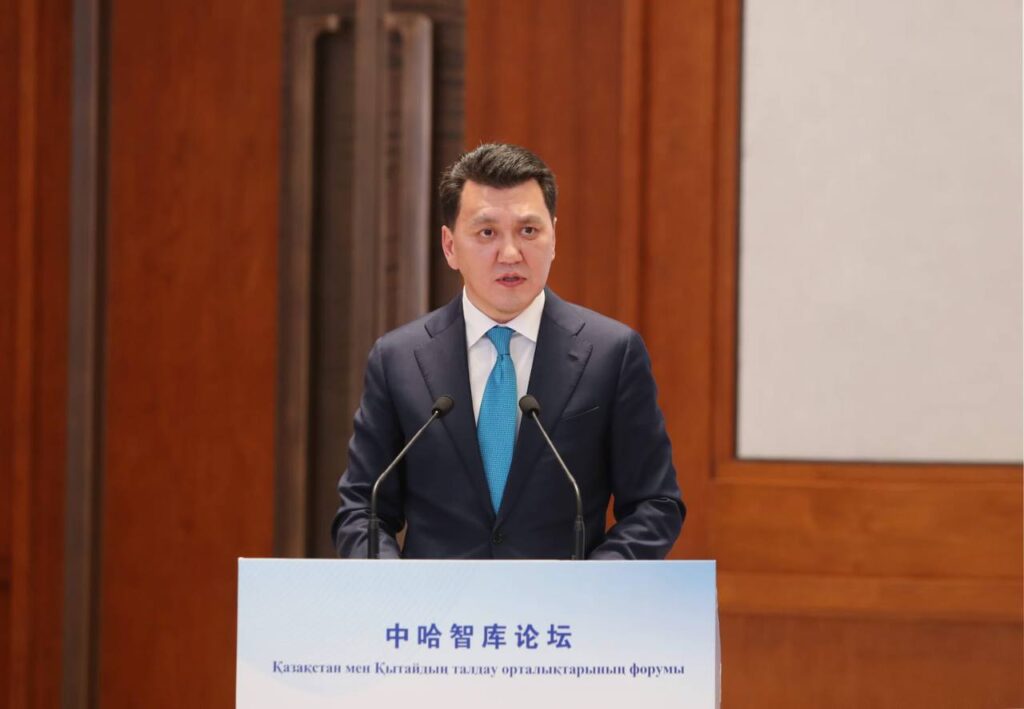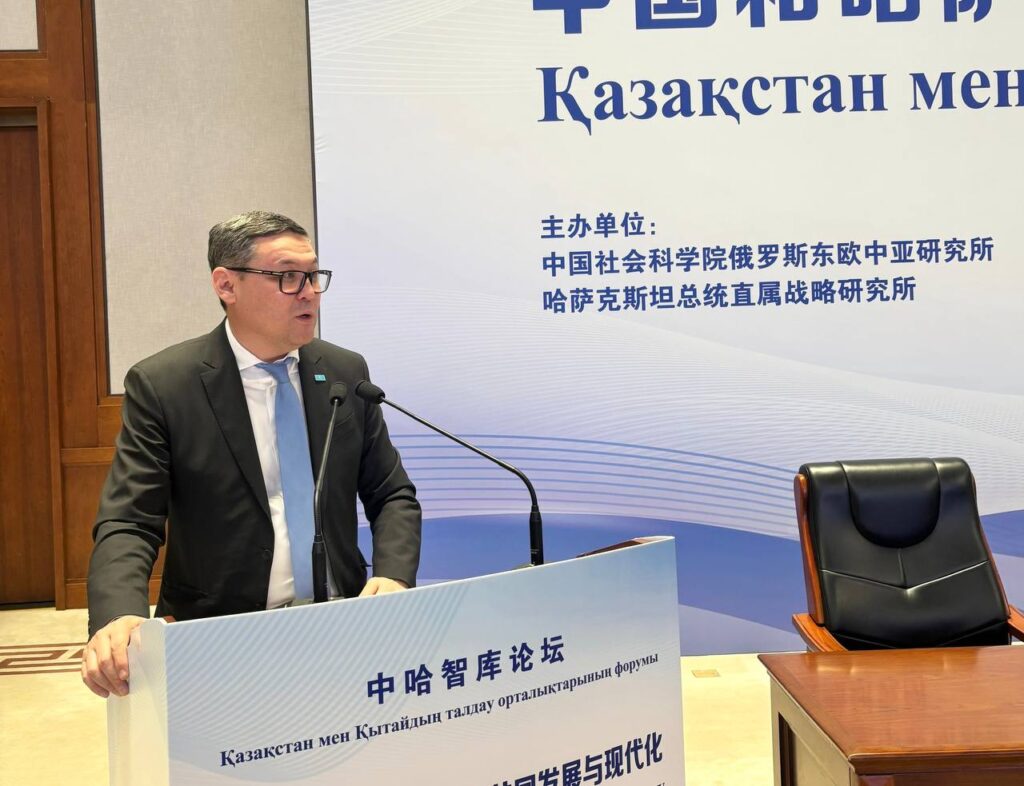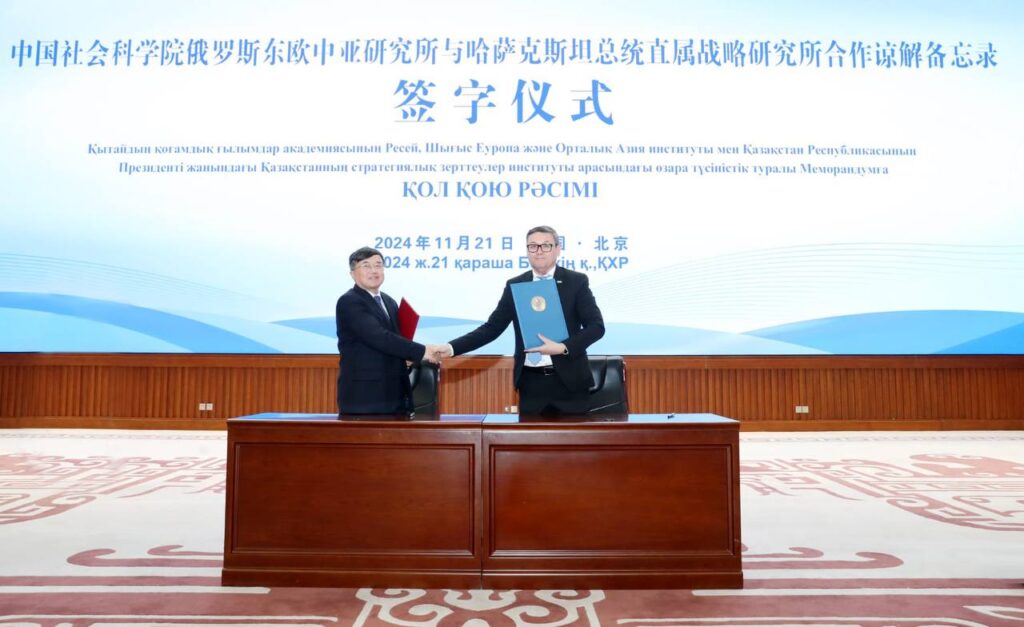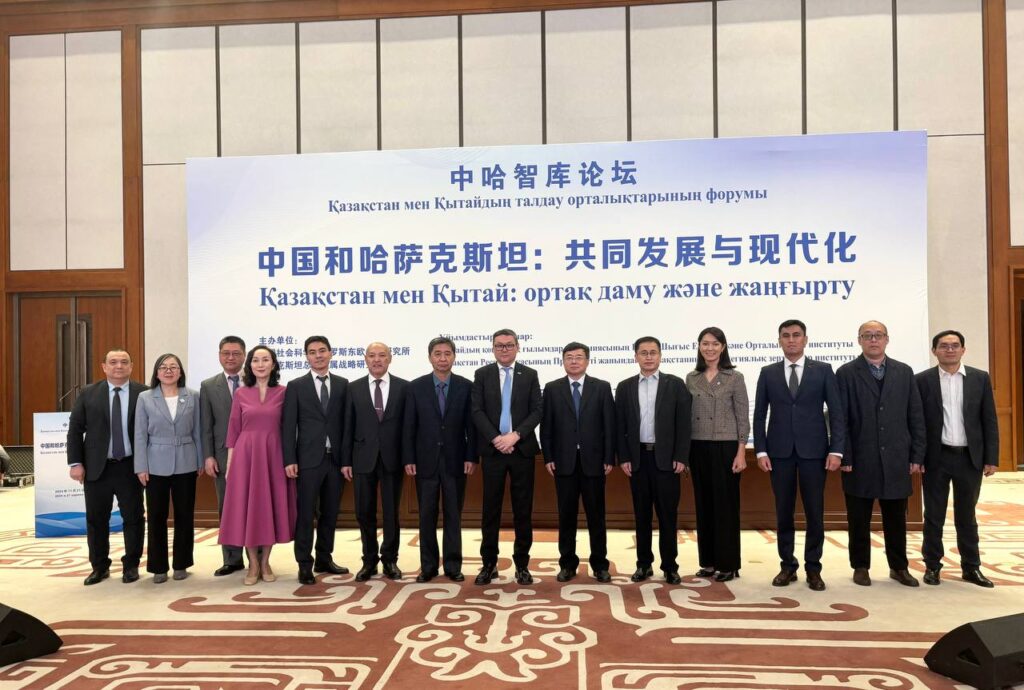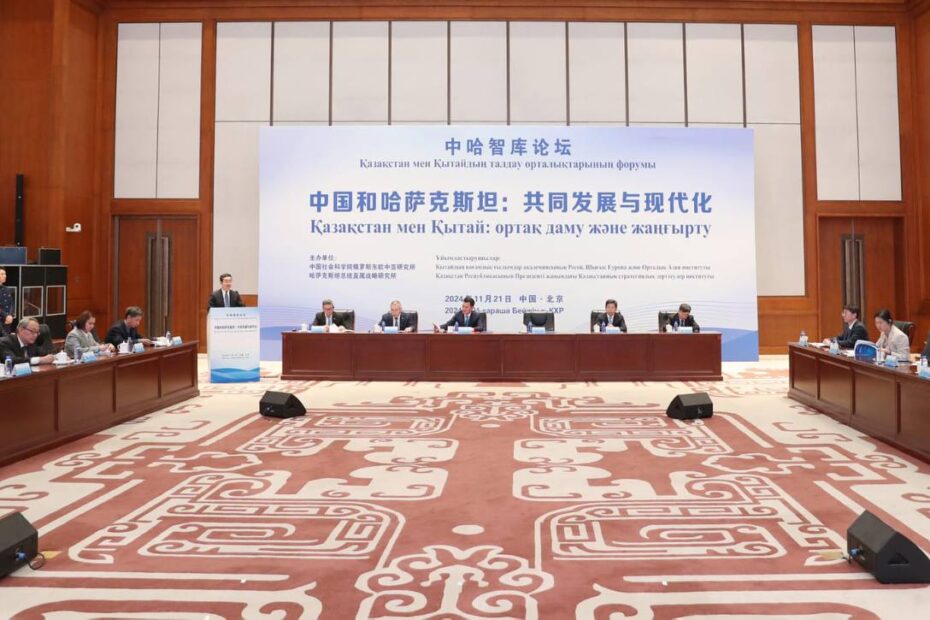On November 21, 2024, the inaugural session of the Kazakhstan-China Think Tank Forum was held in Beijing. The event was organized by the Kazakhstan Institute for Strategic Studies under the President of the Republic of Kazakhstan (KazISS) on the Kazakhstani side and the Institute of Russia, Eastern Europe, and Central Asia of the Chinese Academy of Social Sciences (CASS) on the Chinese side.
The Kazakhstani delegation was led by State Counselor of the Republic of Kazakhstan Erlan Karin. Participants included KazISS Director Yerkin Tukumov; Director of the Center for Political Studies at the Institute of Philosophy, Political Science, and Religious Studies, and member of the Belt and Road Expert Club, Aidar Amrebayev; Director of the BLCU Kazakhstan branch of the Beijing Language and Culture University, Saule Koshanova; and Head of the Asian Studies Department at KazISS, Aidar Kurmashev.
The forum is set to become an important platform for discussing pressing issues of bilateral cooperation and shaping strategic directions for interaction between the two countries. The program included panel discussions and presentations on key topics such as the impact of global challenges on Kazakhstan-China relations, the role of higher education as a driver of innovation for strengthening both economies, and the significance of human capital for sustainable development.
State Counselor Erlan Karin and CASS President Gao Xiang addressed the participants with welcoming remarks.
“Bringing together Kazakhstani and Chinese experts is not only about current cooperation but also a strategic investment in the future of our nations. The dialogue between our experts will help generate new solutions for global challenges and strengthen bilateral cooperation,” stated Erlan Karin in his speech.
He also highlighted the comprehensive reforms initiated by President Kassym-Jomart Tokayev aimed at transforming Kazakhstan’s political system and public relations.
“Institutional reforms in Kazakhstan are focused on building a new system of societal values based on the principles of the rule of law, diligence, creativity, and progress. In this sense, we share many similarities with the Chinese people,” said Karin.
He announced that the second Kazakhstan-China Think Tank Forum will be held next year in Kazakhstan.
In his remarks, KazISS Director Yerkin Tukumov noted that the forum opens unique opportunities for Kazakhstan and China to collaborate on addressing global challenges and adopting innovative approaches.
“We aim to build strong, balanced, and mutually beneficial relationships with Chinese think tanks based on trust, respect, and mutual support,” said Tukumov.
He also emphasized the importance of educational and research initiatives as a foundation for elevating intergovernmental dialogue to a new level.
“One of the key initiatives of our forum could be the organization of regular public lectures—Public Talks—where leading scholars and experts can share knowledge on relevant topics, ranging from political studies to applied technologies. I also propose considering the publication of special journal issues dedicated to Kazakhstan-China relations. These special editions would facilitate research exchange and strengthen scientific ties between our countries, providing an objective perspective on strategic issues,” suggested Tukumov.
Aidar Amrebayev, Director of the Center for Political Studies, focused on the intersections of Kazakhstan-China relations amidst current global challenges. Particular attention was given to cooperation within the Belt and Road Initiative, harmonization of Kazakhstan’s foreign policy with the European Union and the Organization of Turkic States, and the importance of institutionalizing Central Asian cooperation.
“The priority is implementing ‘honest projects,’ as emphasized by President Xi Jinping, with pragmatic and calculated commercial content that meets the mutual interests of the states,” stressed Amrebayev.
Aidar Kurmashev, Head of the Asian Studies Department at KazISS, highlighted the forum’s potential for discussing prospects and approaches to expert cooperation, ultimately contributing to the economic growth and social development of both nations. He also emphasized the role of technology development, green energy, and cultural exchange.
“Kazakhstan strives to create a developed digital economy and strengthen its position in high-tech sectors. China consistently leads in the number of patents in innovation and demonstrates impressive growth in areas such as artificial intelligence, fintech, and smart cities. Collaboration with China offers Kazakhstan an opportunity to adopt best practices and integrate cutting-edge technologies,” Kurmashev emphasized.
The forum’s key event was the signing of a Memorandum of Understanding between KazISS and the Institute of Russia, Eastern Europe, and Central Asia of CASS. The Chinese side was represented by Sun Zhuangzhi, Director of the institute.
The memorandum signaled the parties’ commitment to deepening scientific and expert collaboration and outlined shared approaches to advancing Kazakhstan-China relations. It identified key areas of cooperation, including joint scientific events and research, exchange of analytical materials and publications, information support, and the establishment of a mechanism for regular Think Tank Forum meetings to ensure a systematic approach to work.
Additional speakers included Deputy Director of the Institute of Russia, Eastern Europe, and Central Asia Li Zhengli; Director of the Institute of Eurasian Social Development of the Development Research Center under the State Council of China, Li Yongquan; Senior Research Fellow at the CASS Institute of World Politics and Economy, Ouyang Xianing; and Head of the Central Asia Department at the Institute of Russia, Eastern Europe, and Central Asia, Zhang Ning.
The Think Tank Forum reaffirmed Kazakhstan and China’s readiness to further strengthen their partnership through joint projects aimed at addressing strategic challenges and enhancing bilateral ties. Participants highlighted key areas for future work, including the development and implementation of joint research projects, expansion of educational programs and exchange opportunities, enhancement of publishing and information-sharing activities to increase transparency and efficiency of dialogue, and adoption of advanced technologies for sustainable economic growth and competitiveness.
The establishment of a mechanism for regular Think Tank Forum meetings will systematize interactions and create a platform for tackling global challenges. The forum will serve as a foundation for long-term scientific dialogue, innovative collaboration, and cultural exchange, opening new perspectives for Kazakhstan-China bilateral relations.
